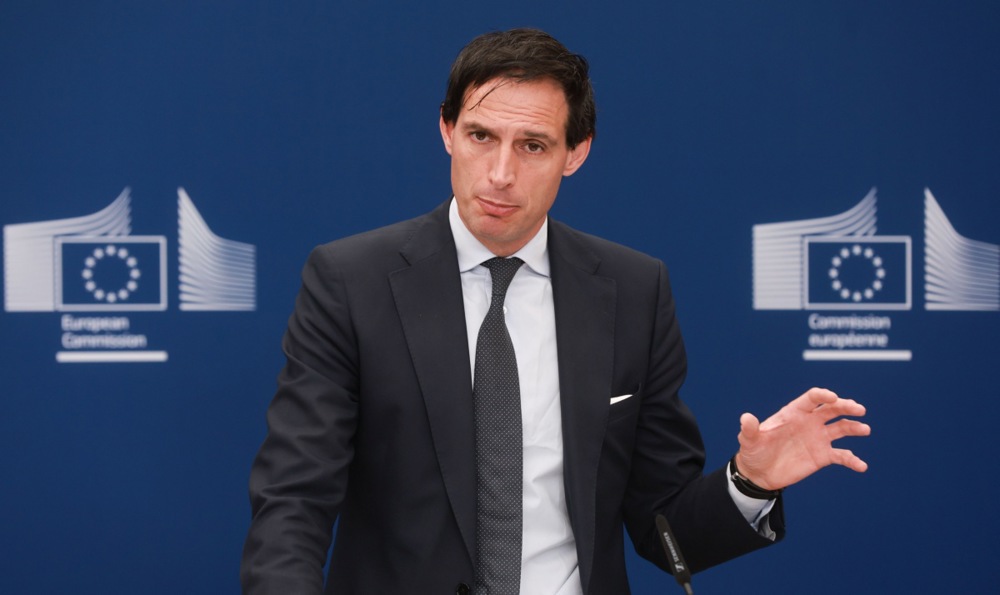Brussels has poured cold water over Sweden’s approach to tackling smoking and plans to move in a completely different direction with its upcoming Tobacco Plan.
That is despite the Nordic country being the most successful in combating cigarette use, having the lowest smoking-related cancer deaths in the European Union.
Sweden is a complete outlier in the EU and even obtained an exception from EU law regarding the use of snus, banned across the rest of the bloc, when it joined in 1995.
Snus is a type of smokeless tobacco that originated in Sweden and has long been in popular use there. It is made from moist, ground tobacco that is pasteurised rather than fermented, which distinguishes it from products such as chewing tobacco.
Major tobacco companies have increasingly moved away from their traditional focus on cigarettes, responding to growing public hostility and changing social attitudes toward smoking.
Instead, they are investing in alternative nicotine and tobacco products that pose significantly lower health risks, aiming to secure their economic future while continuing to meet the strong market demand for nicotine consumption.
They strive for so-called harm reduction via e-cigarettes, heated tobacco, snus or nicotine pouches.
It is in this light that US-based Philip Morris International (PMI) acquired Swedish Match in late 2022, a global leader in smoke-free products, particularly oral nicotine products such as ZYN and General. PMI paid €14.62 billion for the company.
Brussels Signal was invited to Sweden on September 30 to speak with the scientists at the research department of Sweden Match, including health specialists such as professor Karl-Olof Fagerström, who was awarded a World Health Organisation Medal for outstanding work in tobacco control.
Fagerström is specialised in behavioural medicine, addiction, nicotine pharmacology and the author of 170 peer-reviewed publications.
He pointed out that Sweden had succeeded in becoming “smoke free” in all age groups under 65. This means that less than 5 per cent of the population smokes cigarettes.
Despite this, nicotine use in the country was around the EU average. Swedes use less harmful products to get their nicotine intake, thus less smoking and less cancer.
Fagerström said studies showed that nicotine makes people addicted but that it was the chemicals in cigarettes that caused almost all of physical damage.
This was supported by two other European outliers on cancer-related deaths, Norway and Finland, where products including snus were also allowed. In Sweden, there has been a system of tax differentiation aimed at steering the population away from smoking.
These policies have led to lung cancer being 61 per cent lower in Sweden compared to the EU average. Fagerström pointed out that if Belgium switched to the same policies, it would lead to up to 11,000 fewer deaths per year.
But Brussels is not impressed with these statistics, it seems. The European Commission is hashing out new tobacco policies, together with new taxation rules and anti-cancer plans. It has taken a “teetotal” approach, not only banning smoking but all tobacco-based products, including those used by people who want to smoke less or avoid the worst aspects of smoking.
Asked by Brussels Signal how the EC regarded the figures from Sweden, a spokesperson said: “There are no safe levels of tobacco or nicotine consumption, including from smokeless tobacco products and nicotine pouches.
“In addition to their harmful effects on human health, these products deliver sufficient nicotine to induce and sustain nicotine addiction, as highlighted in a report of a WHO study group.
“In July 2025, the Commission proposed an update of the EU’s Tobacco Taxation Directive. In light of evolving public health challenges and significant shifts in the market, the reform modernises the Directive in line with the EU’s health and economic priorities and strengthens the Single Market,” the spokesperson continued.
“Tobacco taxation is harmonised at EU-level but the latest update to the Directive is from 2010. Since then, market dynamics have changed significantly. The revised Directive shall apply from 2028, extending the scope of the directive to new products (e.g. e-cigarettes, heated tobacco and nicotine pouches).
“These products will be covered with new minimum taxes and their movements within the EU will be monitored as well to avoid fraud.
“The Commission is currently undertaking a comprehensive evaluation of the Tobacco Products Directive 2014/40/EU and Tobacco Advertising Directive 2003/33/EC. The evaluation follows an evidence-based approach in line with the Better Regulation requirements and examines the national regulatory responses to certain aspects of tobacco and nicotine products.
“The findings of this evaluation will inform the next steps concerning these two Directives.”
The spokesperson, though, added: “Swedish snus, referred to as snus or white snus, remains outside the scope of the Directive, as stated in Sweden’s EU Accession Treaty.”
Earlier this year, Sweden rose up against Brussels’ new Tobacco Tax Directive, calling it “completely unacceptable”.
Brussels’ Multi-annual Financial Framework (MFF) wanted to introduce tax increases on tobacco and alternative products such as e-cigarettes, nicotine pouches, vapes and heated tobacco. Revenues of these taxes would be redirected to its own budget.
Swedish Finance Minister Elisabeth Svantesson has come out aggressively against Brussels’ new Tobacco Tax Directive, calling it “completely unacceptable”. https://t.co/3PviVi2n24
— Brussels Signal (@brusselssignal) July 10, 2025





